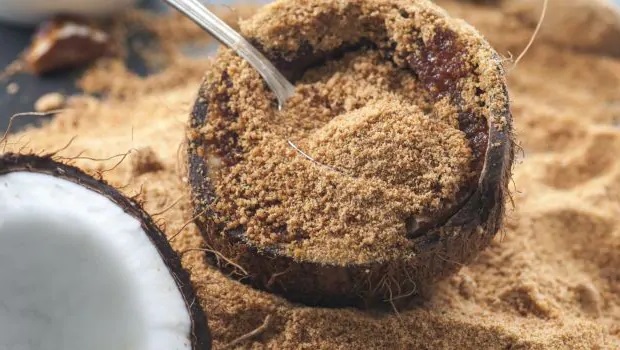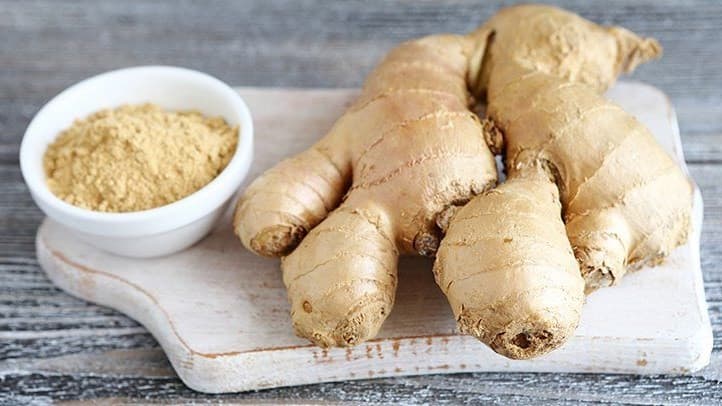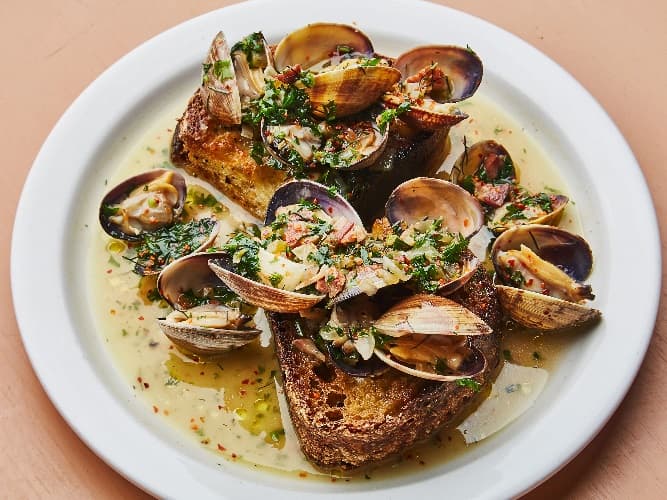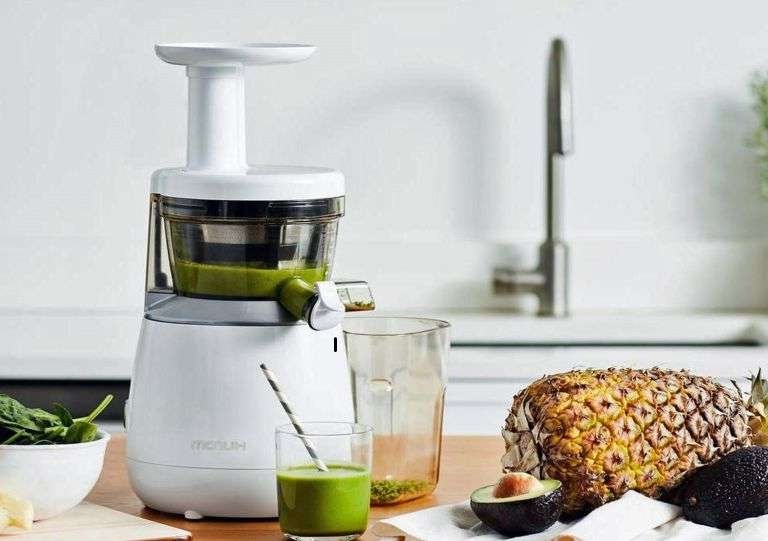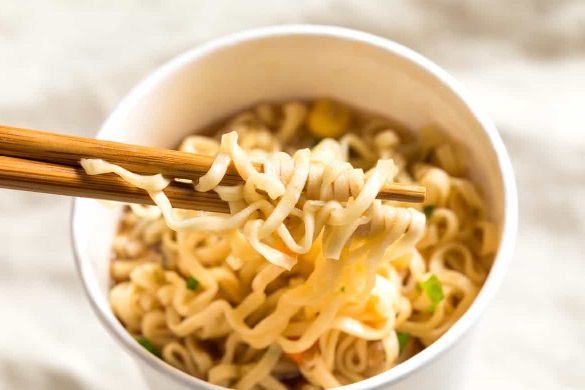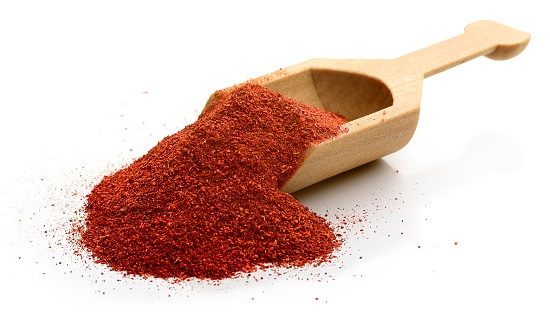Coconut Sugar Substitutes: How To Use Coconut Sugar Alternatives?
In this article, an Ideal coconut sugar substitute for your meal is no longer an issue anymore!
Coconut sugar is a natural sweetener that is becoming more and more popular. It has a lower glycemic index. This makes it a healthier option for people with diabetes or those who are trying to lose weight.
If you’re a fan of baking with coconut sugar but find that you’re out of it, don’t worry. There are plenty of substitutes that you can use in its place. In general, any type of sugar will work as a substitute for coconut sugar.
Best Coconut Sugar Substitutes
If you’re looking for something that has a similar flavor profile, Here is a list of substitutes that hopefully may help you!
Raw Honey
Raw honey is a coconut sugar substitute that has many benefits. It is a natural sweetener, and it also contains enzymes and amino acids.
Honey that has not been pasteurized is known as raw honey. This means it hasn’t been heated and the various ingredients, such as bee glue, pollen, and beeswax, haven’t been extracted.
On the other hand, raw honey is a better choice because it retains more of its natural qualities. As mentioned It has been filtered and pasteurized less, meaning that the beneficial enzymes and nutrients are still intact. In contrast, processed honey has been heated to high temperatures, killing off these important elements. As a result, raw honey is thought to be healthier and more flavorful.
When substituting coconut sugar for granulated sugar in a recipe, use 1/4 cup of honey for each 1 cup of coconut sugar. Keep in mind that since honey is liquid and granulated sugar is solid, you may need to adjust the other ingredients in your recipe accordingly. For example, if a recipe calls for 1/2 cup of granulated sugar and 1/4 cup of butter, you would substitute 1/2 cup of honey and 1/4 cup of melted butter.
Light Brown Sugar
Light brown sugar is a type of sugar that has a deep, coffee-like, or caramel flavor. It is made by adding molasses to white sugar.
The addition of molasses gives light brown sugar its characteristic flavor and color. It has a slightly different flavor than white sugar and can be used in baking recipes in place of white sugar.
While coconut sugar is a healthier option than regular white sugar, it can be difficult to find in some areas. A great advantage of brown sugar is that it has a similar flavor and can easily be found in most grocery stores.
When substituting light brown sugar for coconut sugar in a recipe, it is important to be very careful with the proportions. Coconut sugar is about 1.5 times as sweet as light brown sugar, so if the recipe calls for 1/2 cup of light brown sugar, you would use 3/4 cup of coconut sugar.
Sucanat
Sucanat is a sugar made from sugar cane. It is an unrefined, whole sugar cane that has been made by obtaining the juice from sugar cane and heating it. This process retains all of the natural minerals and nutrients found in sugar cane.
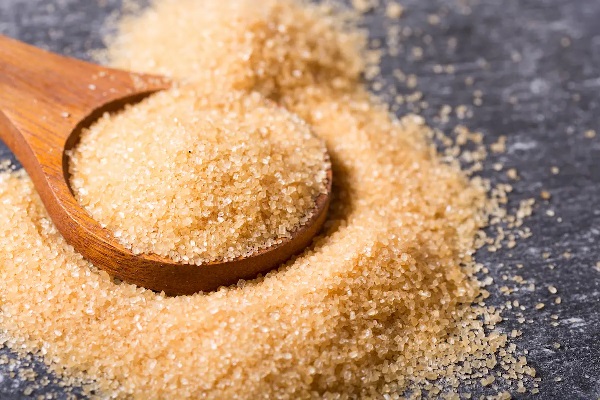
Sucanat is a type of sugar that is less processed and more natural. It is often used as a coconut sugar substitute because it has a similar flavor and texture. To use Sucanat as a coconut sugar substitute, dissolve it in liquids or cook with it before using it in recipes.
All you need to do is use 1 tablespoon of Sucanat for every tablespoon of coconut sugar. This will ensure that your recipe still turns out the same as if you had used regular sugar. At is evenly dispersed.
Maple Syrup
Maple syrup is a type of syrup that is typically made in Canada. It is made from the sap of maple trees, the sap is boiled down to make a thick syrup that is sweet and delicious. and it has a characteristic flavor that makes it a popular choice for many different types of foods.
On the other hand, maple syrup is a more popular sweetener and it is less expensive than coconut palm sugar. However, it is not as sweet as coconut sugar so you might need to use more of it in your recipe.
When substituted for coconut sugar, maple syrup can be used in most recipes. However, it is important to adjust the other ingredients to maintain the recipe’s consistency. For example, if a recipe calls for 1/4 cup of coconut sugar, then we only use 1/2 cup of maple syrup, and so forth.
Date Sugar
Date sugar is made from dried dates. It’s is a healthier alternative to coconut sugar, as it is lower on the glycemic index and contains minerals like potassium, magnesium, and zinc. However, because date sugar is composed of larger granules than coconut sugar, it does not dissolve in liquids as easily. When adding date sugar to drinks or food, be sure to stir well or use an immersion blender to help break down the granules.
Date sugar is made from dried dates and it can be found in most supermarkets. However, it’s more commonly found in natural food stores.
How to use it?
replace coconut palm sugar with date sugar at a 1:1 ratio in most recipes.
Xylitol
Xylitol is a sugar alcohol that is found in fruits and vegetables. It has a sweet taste and is used as a sugar substitute. It is popular among people who are looking for a healthier alternative to regular sugar.
Though xylitol has a lower calorie intake than sugar, it still affects blood sugar levels. For people with diabetes or those who are trying to cut down on their sugar intake, xylitol may not be the best substitute.
Xylitol is a sugar alcohol that has health benefits like increased calcium absorption and improved dental health. It can be used as a coconut sugar substitute in recipes or as a sweetener in tea or coffee.
In general, when substituting coconut sugar for other sweeteners. For xylitol, use 2/3 cup of xylitol for every cup of coconut sugar. This should produce a similar level of sweetness.
Demerara Sugar
Demerara sugar is a type of sugar that is made from raw sugar cane. The sugar is first milled to remove the outer layer of the sugar cane. This leaves behind the sucrose crystals and molasses. The molasses gives demerara its characteristic flavor and color.
Demerara sugar is a type of sugar that has large grains. It’s often used in coffee and tea because it doesn’t dissolve as quickly as other sugars.
Also, it is a popular choice for baking as it has a unique flavor and texture.
On the other hand, Demerara sugar is a high sucrose content sugar like white sugar. This means that it can significantly increase blood sugar levels when consumed. Although it does contain an equal amount of calories as white sugar, it does not have as many nutrients. Chronic diseases can be caused by overconsuming this type of sugar regularly.
The two sugars have a similar appearance; however, coconut sugar is lower on the glycemic index and contains less fructose than demerara. Thus, If you want to use it as a substitute, use it carefully and with an adequate quantity to match the sweetness your dish requires.
Erythritol
Erythritol is a sugar alcohol found in many different types of food and can be used as a sugar substitute. It is important to note that erythritol is not calorie-free and should be used in moderation.
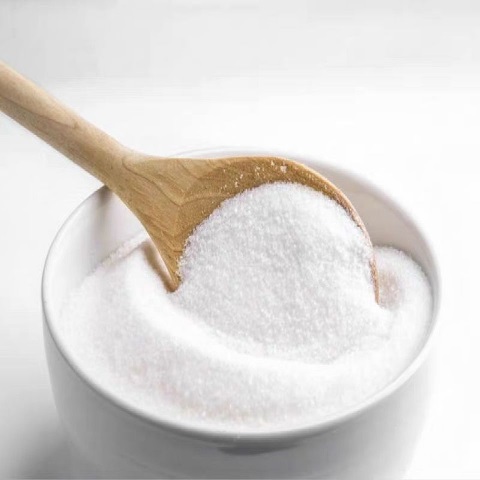
Also, Erythritol is a healthy sugar substitute that can be used as a replacement for traditional carbs. It is made from fermented glucose meaning that it does not affect blood sugar levels, having a glycemic index of zero. Thus, It helps you with your goals of reducing carb intake and losing weight. Making it a great choice for people who are diabetic or have candida.
Additionally, erythritol does not cause tooth decay as other sweeteners do.
Piloncillo
Piloncillo is a type of sugar that is made from the juice of sugar cane. It has a golden brown color and is often used as a coconut sugar substitute.
Piloncillo is a minimally processed sugar made from the sap of sugar cane. The juice is boiled until thick, then poured into molds to cool and harden. Piloncillo has a unique flavor that pairs well with coffee, chocolate, and spices like cinnamon and nutmeg. It is also organic and healthier than white sugar because it retains more minerals and vitamins.
It comes in two varieties: Blanco, which is milder, and Oscura which is richer in flavor. Piloncillo also contains significant amounts of vitamins A, E, C, D, and other minerals like iron, zinc, manganese, magnesium, and copper.
Tagatose
Tagatose is a natural sweetener that can be found in small quantities in dairy and fruits. It has a similar taste to sugar but with only 38% of the calories. This makes it a good substitute for those looking for a low-calorie option. Tagatose can be used as a 1:1 replacement for sugar in most recipes.
Tagatose is a natural sugar substitute that has recently become popular. It is made from lactose, so it is not a good choice for those who are lactose intolerant. However, it does have some advantages over other sugar substitutes: it has fewer calories (1.5 per gram) and a more similar taste to sugar with a glycemic index of 3, which is much lower than regular sugar, which has a glycemic index of 65. This makes it a good choice for people who are on low-carb diets.
Tagatose is a sugar substitute that has prebiotic properties. Prebiotics are substances that promote the growth of beneficial bacteria in the gut, and tagatose does so by increasing the production of short-chain fatty acids. These fatty acids are essential for gut health and have many other benefits as well.
Monk Fruit Sweetener
Monk fruit sugar is a sweetener that does not contain any calories. It is made from the monk fruit, which is a small, green fruit that grows in Southeast Asia. Mogrosides are extracted and purified from monk fruit to give a sweet taste.
Monk fruit sugar is a versatile sweetener that can be used in many different ways. It can be substituted for regular sugar in recipes, or it can be added to coffee or tea. Monk fruit sugar also dissolves easily, so it can be used in drinks or sauces.
It’s an excellent sugar substitute for people who are looking to cut down on their sugar intake. It is made from monk fruit, which does not contain fructose or glucose. However, it is important to start with small quantities of monk fruit sugar and increase if desired, as it has a slightly different flavor than regular sugar.
Agave Nectar
Agave nectar is a sweetener prepared from the agave plant in a liquid state. It’s a popular sugar alternative since it has a lower glycemic index than other sugars..
It’s been compared to honey and stevia as it is also a monosaccharide and has a high fructose content. As well as its sweetness and health benefits.
When substituting for coconut sugar, use 3/4 part of agave nectar for every part of coconut sugar. And try not to pour other liquids into your recipe.
Stevia
Stevia is a plant-based sweetener that can be used as a replacement for coconut sugar. It comes in both liquid and powder form and has a very rich flavor.
The Stevia plant is a native of South America, and the leaves are where Stevia extract is derived from. The extract has been used for centuries to sweeten foods and drinks. It has no calories and has no effect on blood glucose levels.
In general, it’s best to use a 1:1 proportion of stevia when replacing granulated sugar or coconut sugar. However, it’s important to consider the recipe and taste test as desired sweetness may vary.
Granulated Sugar
Granulated sugar is a type of sugar that comes in large, crystalline grains. It is a healthier option than some other sweeteners and it preserves some of the nutrients. It can be used in baking, cooking, and various drinks.
When looking for good quality, it is important to inspect the label and brand. Although some claim to be organic, many include preservatives and chemicals. Make sure you do your research before buying!
Panela
Panela is a sugarcane product that comes in both solid and liquid forms. The solid form is made by evaporating the juice of the sugarcane, while the liquid form is obtained by mixing panela with water.
Panela has a smoky, earthy taste that makes it a perfect substitute for a coconut sugar substitute.
Turbinado Sugar
Turbinado sugar is a type of unrefined sugar. It has a mild flavor of caramel or molasses and contains some minerals like potassium and magnesium.
It can be used in fruit crisps, bars, cookies, and pies. Baking with turbinado sugar will give your baked goods a crumblier and drier texture, it also has a rich flavor that can be enjoyed in many different recipes. Try using turbinado as a sugar substitute in coffee, yogurt, or cereal for a healthier option.
However, it is important to note that the flavor and color of the two sugars will be different. If you are looking for a precise substitution, it is best to experiment with different ratios until you find one that suits your needs.
In general, you can use a 1:1 ratio to substitute turbinado sugar for coconut sugar.
Muscovado Sugar
Muscovado sugar is a minimally refined sugar that has a high molasses content. This makes it taste and smell richer than other sugars, and gives it a darker color. It is often used in baking and specialty coffee drinks.
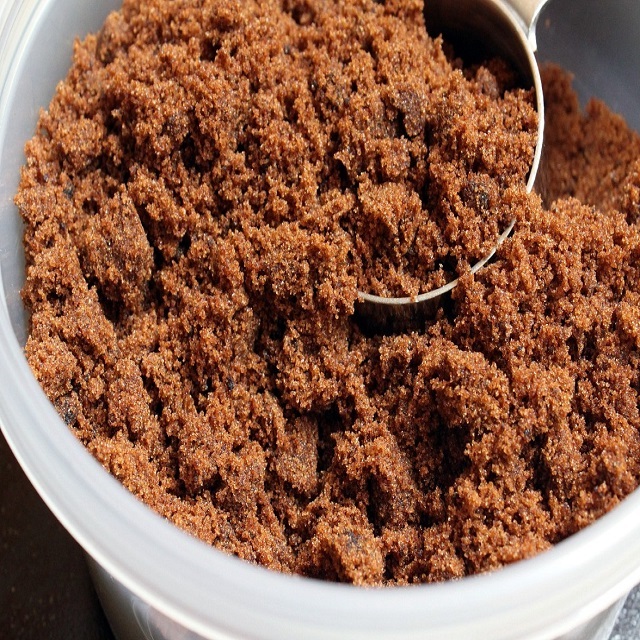
It is made from pure cane sugar juice that is boiled until all the water evaporates and then the syrup is slowly poured into cool pans to crystallize. Muscovado sugar contains about 50% sucrose and 50% glucose and fructose.
Muscovado sugar is a great substitute for coconut sugar because it has molasses. This gives muscovado sugar a stronger, unique, and more complex sweetness than other sugars.
You may want to consider sifting it before mixing it into your dough or batter to avoid any clumps.
Allulose
Allulose is a sugar-free sweetener that has recently become more popular. It is made from corn starch and tastes very similar to regular sugar. It can be used in most recipes, but it is important to note that it does not caramelize as regular sugar does.
Allulose is a form of fructose that is derived from plants and is 70% as sweet as sucrose. It has a similar taste to coconut sugar and can be used as a substitute in most recipes.
Read more: the ultimate guide of Marjoram replacements
FAQs
Here’s a list of commonly asked questions. Be sure to read them carefully to stay informed.
From where can I get coconut sugar?
The first step is to find a store that sells it and then buy some. The next step is to make your coconut sugar by using a stove or an oven. Next, you will need to heat the coconut water, then add it to the sugar with a little bit of lemon juice.
Is there any good alternative for coconut sugar in baking?
Yes, there are several alternatives to coconut sugar in baking. Some common substitutes include cane sugar, brown sugar, and granulated white sugar.
Is coconut sugar healthier than sugar?
Yes, coconut sugar is healthier than regular table sugar because it does not have the same negative health effects as processed sugars.
Coconut sugar is a naturally low glycemic index, as well as a high level of antioxidants.
What is coconut sugar?
Coconut sugar is a form of fine, granulated cane sugar made from the sap of palm trees that are tapped. Coconut sugar is not to be confused with coconut nectar, which is a sweet liquid made from the sap of coconut palm trees.
Can coconut sugar cause inflammation?
Coconut sugar is made by extracting the sap of coconut palms. This sap consists primarily of sucrose, which can cause inflammation when consumed in high quantities. However, coconut sugar contains a small amount of glucose, which is not metabolized as sugar in the body and does not cause inflammation.
What’s the taste of coconut sugar?
The taste of coconut sugar is sweet, light, and slightly grassy.
The taste of coconut sugar is very different from other sugars, with a strong flavor that tends to have a caramel or even floral note.
How to use coconut sugar?
Coconut sugar is a type of natural sweetener made from the sap of coconut flowers. The sap is collected and processed to extract up to 70% pure sucrose. Coconut sugar has a similar sweetness to regular sugar but is used more often in cooking and baking.
Coconut sugar’s uses include:
- It can be used to make sweetened teas, fruit juices
- In baked goods such as brownies, cookies, pies, and sweetbreads.
- In sauces, dressings, jams, marinades, and syrups
- It can be used in place of regular granulated sugar for healthier hot cocoa or coffee
- It is also great for use in sweetening cold beverages, As a low-glycemic index substitute.
How to distinguish between coconut sugar and brown sugar?
The difference between coconut sugar and brown sugar is that coconut sugar is made from the sap of a coconut tree, while brown sugar is made from the juice of a cane plant. The sap of a coconut tree is collected from the blossoms and then boiled, whereas the juice of a cane plant is processed.
How to choose coconut sugar substitutes?
To choose a coconut sugar substitute, it is important to consider the following factors: sweetness, texture, and flavor. Sugar substitutes with a high level of sweetness will often have a very soft texture and a light flavor. Sugar substitutes with a low level of sweetness will often have a very hard texture and a strong flavor.
How do I benefit from coconut sugar?
Coconut sugar is a form of raw, unrefined sugar that has many benefits for your health and the environment. Coconut sugar contains six grams of fiber per tablespoon, which can help lower cholesterol and blood sugar levels. It also contains a small amount of potassium, magnesium, calcium, iron, zinc, and manganese.
Conclusion
In conclusion, though these sugar substitutes come with their benefits, you should use them all in moderation. Too much of anything is bad for you, and these sugar substitutes are no exception. Moderation is key when it comes to your health!
We would love to hear if you tried any of these solutions or if you have your method for using coconut sugar substitutes. Contact us and let us know!

